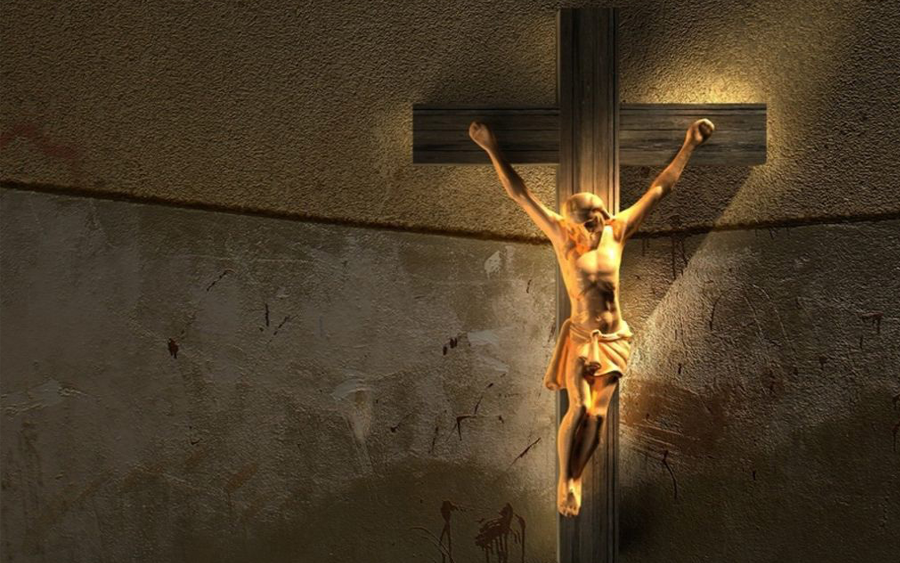Pre-Meeting Statement on Child Protection in Rome UISG / USG
At the start of the meeting on prevention and protection of minors, we, Major Superiors and Major Superiors of Religious Orders and Congregations from around the world, want to express our support for this initiative of Pope Francis.
In our work as religious men and women, we encounter many situations where children are unwanted and become victims of abuse, neglect, and mistreatment. We see child soldiers; child trafficking; sexual abuse of minors; physical and emotional abuse of minors. These are voices that cry out. As adults, Christians, and as religious men and women, we want to work so that their lives change and improve the situations they find themselves in.
What is common to all these situations is vulnerability. Children are the most vulnerable subjects in our societies. Poor, disabled, or homeless children, those living on the margins, belonging to the lowest social or caste classes, can be particularly vulnerable. They are considered ‘non-essential,’ ‘objects’ for use and abuse.
Sexual abuse in the Church
This meeting focuses particularly on sexual abuse of children and on abuse of power and conscience by those who hold authority in the Church, especially bishops, priests, and religious. It is a story that has extended over decades; a story of immense pain for those who suffered this abuse.
We bow our heads in shame upon realizing that this abuse has taken place within our Congregations and Orders, and in our Church. We have learned that abusers deliberately hide their actions and are manipulators. By definition, it is difficult to uncover these abuses. Our shame increases when we realize that we did not notice what was happening. Looking at the Provinces and Regions of our Orders and Congregations worldwide, we realize that the response of those in authority has not been what it should have been. They have failed to see the warning signs or have not taken them seriously.
Our hopes for this meeting
Regarding this gathering, we hope that the Holy Spirit will act powerfully during these three days. A three-day meeting is a brief time. However, we believe that with the winds of change blowing in our Church and with the good will of all involved, it is possible to initiate important processes and create accountability structures, as well as sustain existing processes and structures. It is possible to imagine new steps forward, to make decisions so that implementation can be swift and universal, with due respect for diverse cultures. Child abuse is an evil at any time and place: this point is non-negotiable.
The Holy Father
The leadership of the Holy Father is key. He has shown us the way in many of these areas; he has acknowledged pain and guilt; he has met with survivors; he has recognized his own mistakes and the need to learn from these survivors. We join his mission to humbly acknowledge and confess the evil that has been done; to welcome survivors, to learn from them how to accompany those who have been abused, and how they wish us to listen to their stories.
On our part, we promise to do everything in our power to better listen to survivors, humbly recognizing that we have not always done so. We will implement all decisions made during the meeting regarding accountability required of those in authority.
A culture of protection
We need a diverse culture within the Church and in our society at large. We need to promote a culture where children are considered treasures to be safeguarded and protected.
– Education and Health: Through the schools and hospitals many of us run, we can make a difference. These institutions now have greater awareness of the abuse problem, as well as better protocols and levels of protection. Children who attend these places are safer than ever.
Although we must admit that this does not happen in all cases; our practices can serve as an example for others.
– Training: We will integrate child and vulnerable adult protection into our training programs, ensuring that at each stage, proper instruction and education are provided to both trainers and trainees. Cultural prejudices must be challenged. As mentioned earlier, it must be clear that child abuse must not be permitted or tolerated in any culture or context.
– Spirituality: We will ask our Spirituality Centers to develop special programs to accompany anyone, victim of abuse, who wishes to find help in their difficulties regarding faith and the meaning of life. Personal encounter with Jesus is something that can heal us all. But we also understand that those who have been victims of abuse by priests or religious may want to stay away from the Church and those who represent it. We know that some survivors want to walk this path of healing, and we will humbly try to walk with them. A spirituality that emphasizes personal growth and healing is a gift and a special grace for many survivors. Particular attention must be paid to the traditional way of speaking about sin. Those who have been abused often carry feelings of guilt, shame, and even sin, when in fact, they have been sinned against.
These and other steps are means by which religious men and women can help the Church in its efforts in this field.
Conversion
Pope Francis rightly condemns the culture of clericalism that has hindered our fight against abuse and that, in fact, is part of its roots. Moreover, the strong sense of family in our Orders and Congregations—something generally very positive—can make it difficult to condemn or report abuse. This has led to unwarranted loyalty, errors in judgment, slow action, denial of facts, and sometimes cover-ups. We feel the need for conversion and want to change. We want to act with humility. We want to identify our blind spots. We want to denounce any abuse of power. We commit to walking with those we serve, moving forward with transparency and trust, honesty, and sincere repentance.
Resources
Resources are always a problem. A quick look at the societies that are carrying out child protection practices shows that public health services also face difficulties in providing adequate resources. This requires us to collaborate so that resources are used effectively and efficiently. UISG and USG will provide means for Congregations to work together and thus reach survivors more effectively on their path to healing. Initial and ongoing formation could perhaps be the best areas to work together. The selection of candidates entering religious life is also something we can collaborate on, identifying best practices. Such selection must be mandatory and of the highest quality.
Call for the involvement of parents and women
We ask for the help of parents in our fight against abuse. They have a natural instinct for protecting children, an instinct that is indispensable. We are especially open to receiving their advice, expertise, support, and challenges. In particular, we want to emphasize the role of mothers. It is fair to say that if advice and assistance had been sought from women in case evaluations, stronger, faster, and more effective measures would have been taken. Our ways of addressing accusations would have been very different, and much suffering for victims and their families would have been avoided.
A message to survivors
Finally, and most importantly, we want to send a message to survivors, and do so directly: we acknowledge that there have been inappropriate ways of addressing this issue and a shameful inability to understand your pain. We offer our sincerest apologies and our regret. We ask you to believe in our good will and sincerity. And we invite you to work with us to create new structures that ensure the minimization of risks.
The meeting will focus on child protection. However, recent media attention has centered on the abuse and exploitation of religious women, seminarians, and candidates in formation houses. This is a matter of grave and alarming concern. We are committed to doing everything in our power to respond effectively. We want to ensure that those who generously seek to join religious orders or are formed in seminaries live in safe places, where their vocation is nurtured and where they receive help to grow in maturity in their desire to love God and neighbor.
At the start of the Protection meeting, we ask forgiveness from everyone for our failures, and we reiterate our support for the Holy Father. We commit ourselves to intensify our efforts to work with him, so that the Church can move forward in a coherent, credible, and united manner; in a truly healing way, sincerely renewed, with new eyes to see and new ears to hear.










